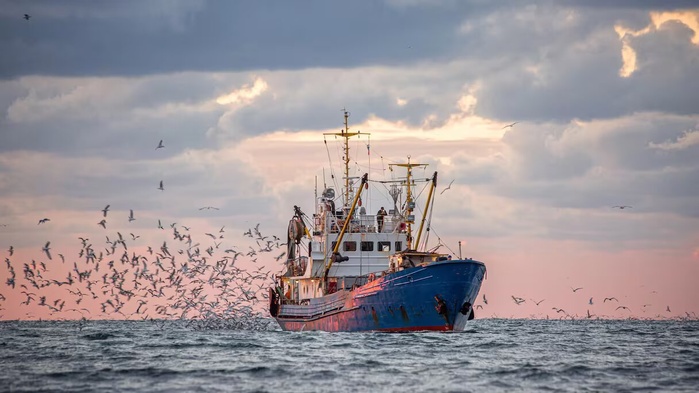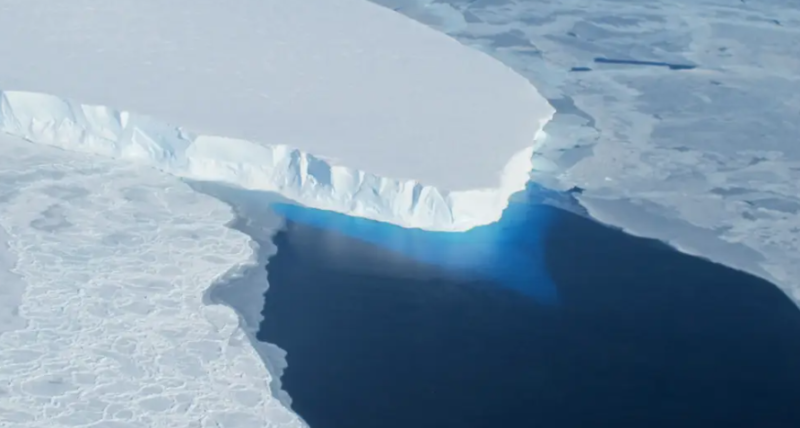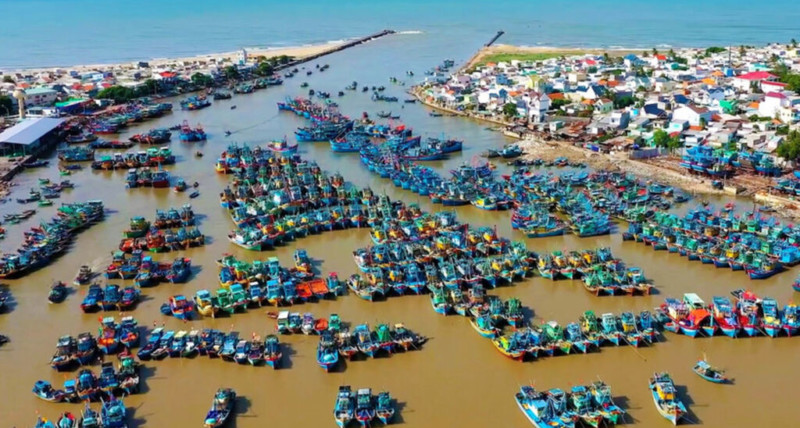The national fisheries sector is not exempt from the challenge of climate change, the impacts of which are already being unleashed globally. The consequences of this global phenomenon on the health and productivity of marine ecosystems are often as serious and disastrous as those faced by other vital sectors such as water and agriculture. In a publication released last October, titled « Fishing and Aquaculture Under the Test of Climate Change: Challenges and Perspectives, » the Ocean & Climate Platform (POC) highlights the warning from the IPCC, which states that « global warming, ocean acidification, and the continuation of current fisheries management policies place 60% of global fisheries at very high risk. » The platform, which holds observer status within the UN conventions on climate (UNFCCC) and biodiversity (CBD), stresses the urgent need to initiate a « transition of fishing and aquaculture practices toward a virtuous model. »
A Double Threat
The situation is even more concerning given that the threat facing the fisheries sector is twofold: in addition to the effects of climate change, there is the degradation directly linked to overexploitation and unsustainable human activities. « The use of non-selective and destructive fishing gear for marine bottoms, the degradation of coastal ecosystems, and the introduction of pollutants, pathogens, and invasive species through aquaculture remain too often linked to the current practices in these sectors, » warn the authors of the report. The consequences affect not only fish species but also their habitats, and through trophic networks, all life in the sea and on land. « In recent decades, the overall abundance of species has significantly decreased. At the same time, the distribution of fish populations is radically changing, their size is shrinking, and biodiversity is eroding, » the report continues.
A Paradoxical Situation
The report’s authors explain that fishing, both locally and internationally, finds itself in a paradoxical situation: « Faced with the decline of coastal resources, it intensifies its technical efforts and extends its activities into the high seas and deeper waters, seeking to capture stocks that continue to diminish. » On the other hand, while aquaculture has seen significant growth worldwide since the 1990s, « it is not spared from frequent climate shocks. » Ultimately, it is also human societies, their economies, and their ways of life that are disrupted by this double threat. « Fishing and aquaculture have already experienced significant economic shocks due to extreme climate events. According to the IPCC, fishing income losses could reach $15 billion by 2050 compared to 2000, if greenhouse gas emissions continue to rise, » the publication highlights.
Morocco on the Front Lines
In a global comparative study (Allison et al., 2009), Morocco ranks 11th among the most vulnerable countries (out of 133 included in the study) to climate change in the fisheries sector. The vulnerability of Morocco’s fisheries sector to climate change « depends on both exposure to risk, sensitivity, and adaptive capacity. » Beyond alarmism, and given the importance of the national fisheries sector, the Kingdom is currently at a critical juncture to ensure the resilience and productivity of its marine ecosystems. With the ambition of developing a promising and sustainable blue economy, the efforts to be combined and multiplied in the coming years will be as vital as they are decisive. While national commitments and the relevant sectoral strategies are already focused on the sustainable valorization of fishery resources, the « cruising speed » has yet to be reached to ensure timely success.
3 Questions to Mustapha Aksissou, Marine Biologist: « Rising Temperatures and Decreasing Precipitation Have a Negative Impact on Fisheries Resources »

.
Some fisheries resources are currently under significant threat. Is the Moroccan sardine also affected?
Unfortunately, scientists believe that all fisheries resources are currently in crisis. This is due to several factors, including overexploitation that these resources have faced for decades. In the Mediterranean, for example, the decline in sardine stocks is evident, as many fishing boats are now turning to the Atlantic. The second factor is pollution, particularly microplastics. A few months ago, we published a scientific article on this issue, building on research conducted by our university’s laboratory.
What about the impacts of climate change?
Indeed, climate change is another global threat. To stay with the example of the sardine, which is part of the small pelagic fish that live near the surface, the impact of climate change is evident through rising temperatures, but also through the decrease in precipitation, which deprives the sea of organic matter from land runoff, negatively impacting fisheries resources such as sardines. Additionally, the spread of invasive species that can compete for sardines’ habitats and food resources must also be considered.
What solutions do you think could help limit the decline of fisheries stocks?
To reverse the trend of declining fisheries stocks in Morocco, we must address the main causes of this phenomenon. Overexploitation must be avoided, particularly by respecting biological rest periods, which can increase the chances of successful stock regeneration. It is essential to combat the spread of invasive species. Effective solutions to pollution should also be implemented to promote the replenishment of natural environments. Finally, international cooperation to combat the impacts of climate change will be crucial in preserving marine ecosystems and fisheries stocks.
Threats: When Warming Disrupts Marine Ecosystems and Fishing
According to the IPCC’s special report on the ocean and cryosphere, the oceans, the planet’s blue lungs, have absorbed more than 90% of the excess heat generated by human activities since the 1970s. This phenomenon is accompanied by a doubling of the frequency of marine heatwaves, severely affecting marine fauna and flora. In addition to these thermal changes, there is an increasing acidification of the waters, a result of absorbing 20 to 30% of anthropogenic CO₂, which disrupts coastal ecosystems and weakens key habitats such as coral reefs. These chemical and physical changes are causing an unprecedented redistribution of marine species. Fish, subjected to both warming and the progressive deoxygenation of the oceans, are migrating to deeper zones or higher latitudes. This redistribution challenges the balance of trophic networks and directly affects the viability of fisheries in many parts of the world. Upwelling zones, such as the Canary and Benguela current systems, which are particularly important for Moroccan fisheries, are already undergoing significant changes due to acidification and reduced oxygen levels. These changes, coupled with an intensification of extreme events such as cyclones and rising sea levels, increase the pressure on marine ecosystems and the human communities that depend on them.
Source: L’opinion




